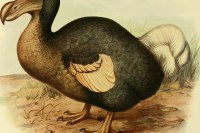Mexico City/Punta Ixtapa
This summer my family have done a life-swap. Every day we eat a large breakfast prepared by the cook, Isabel, in our residence in Mexico City, while Gaby, the maid, tidies our bedrooms. A brace of gardeners in cowboy hats, José and José-Luis, arrive shortly thereafter to fish out bougainvillea blooms from the fishpond. Another José, the driver, awaits our instructions. A beach house in Ixtapa (which means white sand in Nahuatl, the language of the Aztecs) is also at our disposal, with a cook and a maid. Not speaking the language, I talk to the staff in pidgin Latin and they reply in fast Spanish. It seems to work as well as any other form of communication. In return, Jaime and Patricia Riestra receive our cramped house in London. Our cleaner, Mumtaz. And our primitivo house on Exmoor. Viva la revolucion! is all I can say. According to their emails, Jaime and Patricia are happy in Notting Hill, where the only live-in staff I’ve ever seen do not wear crisp maids’ uniforms but coats of soft grey fur. They threw a wild Mexican candlelit party, with tacos and margaritas and a bardic Latin guitarist, in our house and garden, and several of our mutual friends who attended in our absence assured us it was the ‘most fun thing they had ever been to’ in our house, which was really sweet of them.
Here it is the rainy season, and the air is cool. As London deliquesced in the heat, my family whinged that I hadn’t packed enough jerseys, and hail fell in Mexico City. Despite inclement weather we drag our culture-resistant children to the Museo Anthropologia, and show them the pelota hoops, through which opposing teams of players had to cast a heavy rubber ball. My husband tries to explain to the boys what happens if someone fouled (i.e., threw the ball not in the direction travelled by the sun, dur!). ‘They weren’t red-carded,’ he says, in an attempt to bring the peculiar brutality of the first team sport in history, this Mesoamerican version of football, alive. ‘They were decapitated.’ My boys look pensive, realising that Sven and co. had got off much too lightly. Hundreds of years ago the pelota authorities, unlike Fifa and the FA, really knew how to reward players who let their sides down.
And then we drag our children to the Museo Frida Kahlo and the Museo Casa de Leon Trotsky. The first is a U-shaped airy house painted a brilliant blue, set around a courtyard dotted with green palms and pre-Columbian statues. Inside, paintings by Diego Rivera and Frida, who lived there, loved and quarrelled and married, and betrayed each other, divorced and remarried, are mounted on buttercup-yellow walls alongside the custom-made casts Frida wore after her trolley-bus accident. It is intimate and alive and touching, particularly, of course, for those who found themselves weeping during Frida, the movie.
Trotsky’s house is as grim as the Kahlo house is vibrant (her last painting, of watermelons, is entitled ‘Viva La Vida’). The miasma of death clings to every room. My only profound thought after visiting the depressing habitation, with its bullet-pocked bedroom walls, iron beds, treatise-filled shelves and armoured doors, was: how on earth did Frida and Leon ever get it on? After all, she was a bisexual party-girl who wore floor-sweeping fiesta dresses and drank. He was a communist intellectual who liked to spend ten hours a day at his desk. In a sense, the place is a reminder not so much of the failure of perpetual revolution but of the continuing supremacy of hormones.
After a week of this the children become petulant and demand sun and sand. As soon as we arrive in Punta Ixtapa, though, I start fretting about how I’m going to get all the way back to Mexico City. It’s an eight-hour drive. Highways have a reassuring special red lane — the ‘linea roja’ — reserved for drivers ‘without brakes’. Plus Mexican friends had told me that passing a driving test is not here a precondition of taking the wheel. So I immediately book Aeromexico flights, persuade my husband, with my lower lip trembling, that it’s much more sensible for me to fly with the children and him to drive back to Mexico City, and proceed to sink into a deep lotus-eating torpor for the duration of the life-swap.
On the morning of our departure from Ixtapa there is a huge earthquake — 5.9 on the Richter scale — and the bottles of tequila rattle against the mirrored glass in the bar in our all-white beach house. I text Ivo, who is back in England, as it is the first time I have ever felt the earth move. ‘Good thing you’re not driving,’ he acknowledges in his text back. But when we arrive back in Mexico City we discover that the flight to London has been delayed by 28 hours, which makes me think I really shouldn’t have bothered to make any travel plans at all. I’m relieved, anyway, that I don’t have any shares in the aviation industry.
The editor of this magazine, Matthew d’Ancona, sent me an email in Mexico allowing me ‘one full-on plug’ for my novel, Notting Hell (Penguin Figtree, £12.99), in this diary. It is very nice of him (when my brother was editor and allowed me to write on this page, he forbade me to mention my last book, The Mummy Diaries, at all, so I had to smuggle in the plug). But there is no space left, which is probably a good thing.





Comments